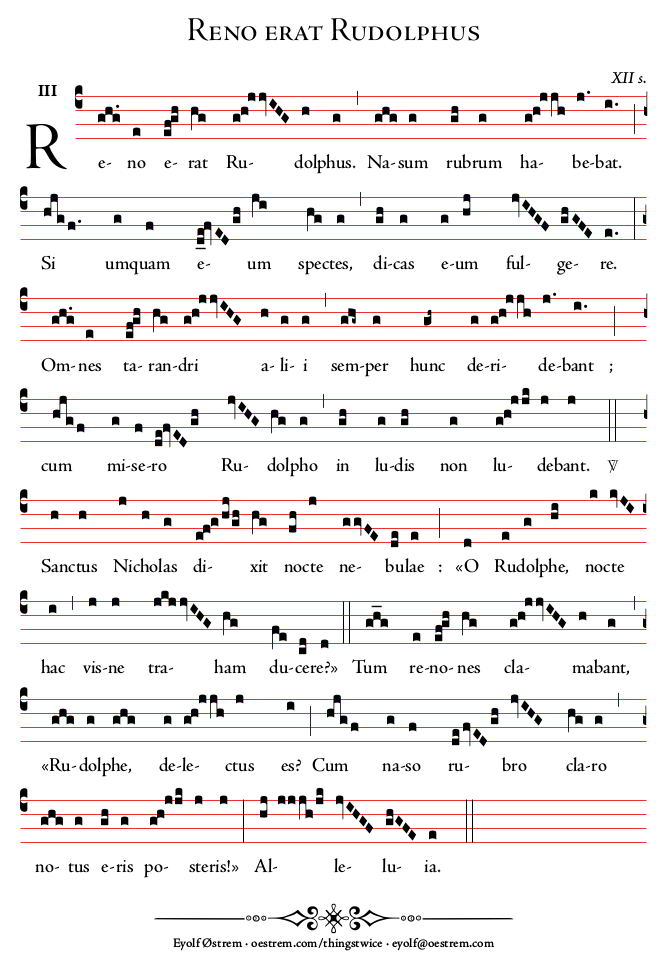Here’s a Christmas song that I wrote 800 years ago:
(use this link if the fancy media bar above doesn’t work, or if you want to download an mp3)
Here’s a more elaborate explanation of what is going on in the song.
And here’s the sheet music to go with it, in a slightly modernized version (and with some changes in the lyrics in relation to the recorded version):
Ten points – or more! – and eternal Christmas cheer, to you if you get the joke.

Fabulous, thanks!!
Makes my mouth stretch sideways!
What software did you use for the chant notation? It’s gorgeous!
It’s done with Gregorio – http://home.gna.org/gregorio/contact
I would have wanted to use my trusted Lilypond, but sadly, the chant functionality there is so bad that it should really be scrapped until it’s fixed. Gregorio is slightly cumbersome to use – the standard workflow involves compiling a text-based file into TeX, then including the resulting file in a LuaTeX file to produce the end result. Luckily, there is an online tool which simplifies the process: http://gregorio.gabrielmass.com/cgi/process.pl
Brilliant – But I can’t quite understand the last line in the mp3: it’s different from the written version. Any clues? (Or is that the joke?)
Not a joke – it’s just the natural consequence of the oral transmission that was the practical circumstance of this repertory: things change between one codification and the next. Sometimes, singers don’t remember exactly, other times they sing an emended version. That’s the case here, I believe: the recorded version is from an earlier reception, whereas the written version stems from a later stage in the development of this fine song.
To find such a thing on what I still think of as a Dylan-related blog is such a funny little confluence of my abiding interests. Thank you for this — it really is so much more beautiful it is than so silly a song deserves.
This is the text as they sing it:
Reno erat Rudolphus. Nasum rubrum habebat.
Si quando hunc VIDEBAS hunc candere tu dicas.
Omnes tarandri alii semper hunc deridebant;
cum misero Rudolpho in ludis non ludebant.
Sanctus Nicholas dixit nocte nebulae: “Rudolphe,
NASO CLARO, NONNE CARUM TU DUCES?” Tum renones cla-
mabant, “Rudolphe, delectus es? Cum naso ru-
bro claro HISTORI? DESCENDES!” Alleluia.
The differences bring it closer to the familiar English version, and “videbas” also serves to rescue it from nonsense.
That was “historia”, by the way, but my macron was not appreciated.
Also, rereading my comment, it does read as if I didn’t get the joke, though I thought I was playing along with it!
I thought that was fairly obvious… :) Thanks for your input. As you also comment in the other post, the textus receptus isn’t perfect, and I’ve tried to emend it at some places, including the ones you point out.